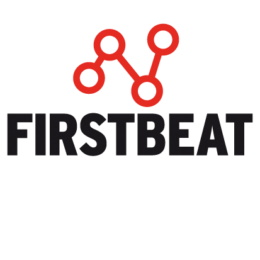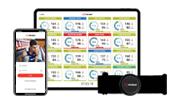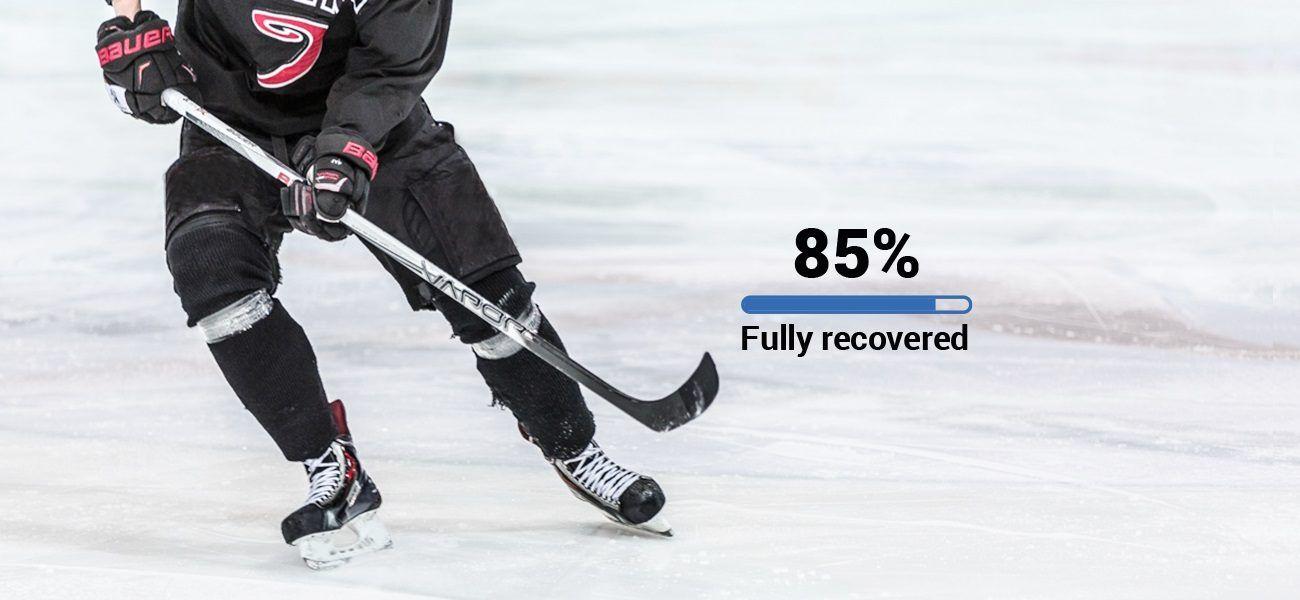
How well a player recovers from one game to the next has a significant impact on their ability to perform. Simply put, when good physical and mental recovery takes place there’s a better chance of achieving optimum performance levels.
Indeed, research has shown that effective recovery benefits athletes both cognitively (decision-making, reaction times) and physically (reduced injury risk, improved stamina). Conversely, poor recovery can increase the risk of injury, add stress to the body and, ultimately, lead to poor results.
At the elite level, superstars like LeBron James and Tom Brady have fine-tuned personalized recovery processes that allow them to remain at their peak throughout the season. Meanwhile, teams across the globe are committing time and money in a bid to increase player recovery during the crucial period between games. For example, Tottenham Hotspur recently unveiled their player accommodation lodge to aid player recovery.
Home and Away
But, is all recovery created equal? With the busy schedules of professional sports in 2018 comes the issue of away fixtures and long road trips, and the prospect of navigating continents and time zones. So, how much difference does being on the road have on player recovery? And what can you do to make sure players are still in the best position to perform when it matters?
The 2015 paper, ‘Stress and recovery of players in Kontinental Hockey League‘, compiled by Tomas Westerlund of the Haaga-Helia University of Applied Sciences looked into this issue using Firstbeat Sports technology.
The study measured the Heart Rate Variability of members of the Finnish ice hockey team Jokerit using the Firstbeat Bodyguard device – now available to teams as part of the Firstbeat Sports platform – throughout a full season. This provided valuable insights on how well players recovered during home and road game stretches, in terms of length of overnight recovery and how long it took for recovery to begin after practice/games.
On the Road
Away fixtures bring with them several issues that could, in theory, impact recovery. When a team is on the road they often must deal with factors including; Crossing multiple time zones, being in unfamiliar surroundings, red-eye flights, and even the fact players can’t sleep in their own beds.
However, the research showed there was very little difference between the average duration of overnight recovery after home games compared to away fixtures. After analyzing 78 separate periods of stress and recovery across the 60-game KHL season, the average duration of overnight recovery among the 31 players measured was 5 hours and 15 minutes after away games. When playing at home, it was 5 hours and 20 minutes.
Interested in how stress and recovery data can inform travel and training periodization? Read more in our guide
Although the results were similar in both instances, it was still short in comparison to overnight recovery after practice or rest days (6 hours 51 minutes) and this did lead to in-season changes by the coaching staff. Specifically, the team removed the compulsory morning practice the day after games and players were given the chance to sleep for longer in the mornings. After seeing the data, the hope was it would maintain a positive stress-recovery balance amongst players, in turn putting them in a good performance state.

Onset of Recovery
Whilst the duration of overnight recovery followed a similar pattern regardless of playing at home or away, the data showed a marked difference when it came to the onset of recovery after games.
After home games, it took, on average, 6 hours and 20 minutes for recovery to begin. That figure shot up to 9 hours and 15 minutes for away fixtures. The travel schedules of road teams almost certainly played a part in this. Traveling through the night after games to return home or reach their next destination delayed the body’s ability to enter a recovery state.
Knowing this information helped coaches adapt Game Day +1 plans. Because individual player data was available, training and recovery plans could be personalized depending on individual situations. For instance, a player whose recovery had been significantly poor or delayed may be held out of a morning practice session.
This level of insight can also affect travel protocol itself. If the fixture schedule allows, a team may decide to travel the morning after a game rather than the night of. This could help speed up the onset of post-game recovery. Returning to the team hotel rather than heading for the airport means players can go through a more ‘typical’ routine involving appropriate meals and calm and comfortable sleeping arrangements, rather than trying to catch 40 winks on a flight before arriving at the hotel in the early hours.
Obviously, every player is different. Having access to both team averages and individual player data using Firstbeat allows coaches to spot those players who consistently struggle with recovery on road trips or, conversely, begin recovering more quickly after games than their teammates even when playing late and flying overnight. This can then influence decisions made regarding training loads and even playing time as the season progresses.
How does data inform decisions at different stages of the game week and season? Listen to the Firstbeat Sports Podcast to find out
No Place Like Home?
Recovery is critical regardless of whether it is taking place in the comfort of a player’s home, or in a team hotel on the road. Factors in both environments – from unusual surroundings and late flights, to home life responsibilities and commitments – have an impact on the quality of recovery that can take place.
Effectively and accurately monitoring players in both situations is an effective way of informing everything from travel schedules to training decisions in the pursuit of a W on game day.
If you liked this article, you should subscribe to our mailing list.
You might also be interested in
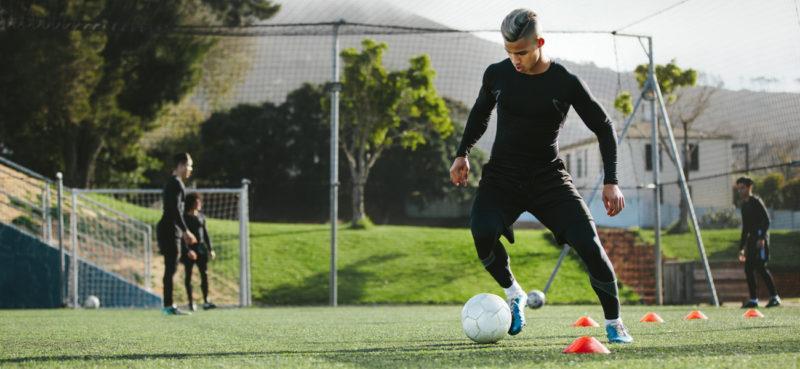
Why Monitor Internal Load in Elite Sports?
A look at the what, how and why of internal load monitoring and why it should form part of your training program.
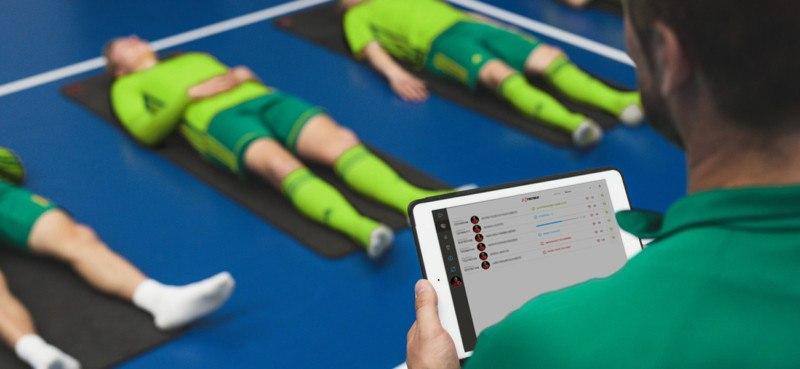
Good Recovery, Better Performance: Why Monitor Recovery in Team Sports?
The use of Firstbeat Bodyguard sensor allows 24hrs measurements to detect how other factors than training are affecting on recovery.
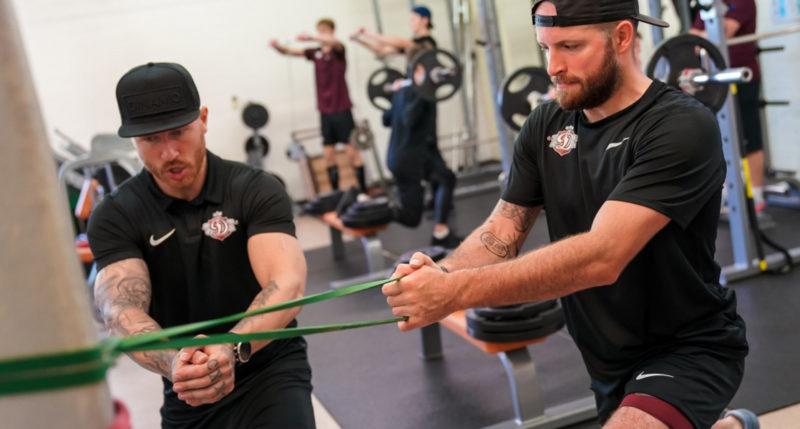
Firstbeat Coach Profile: Raivis Miezans – Dinamo Riga Ice Hockey
Raivis Miezans, the Strength and Conditioning Coach of Dinamo Riga, discusses how he uses Firstbeat Sports with the ice hockey team.

